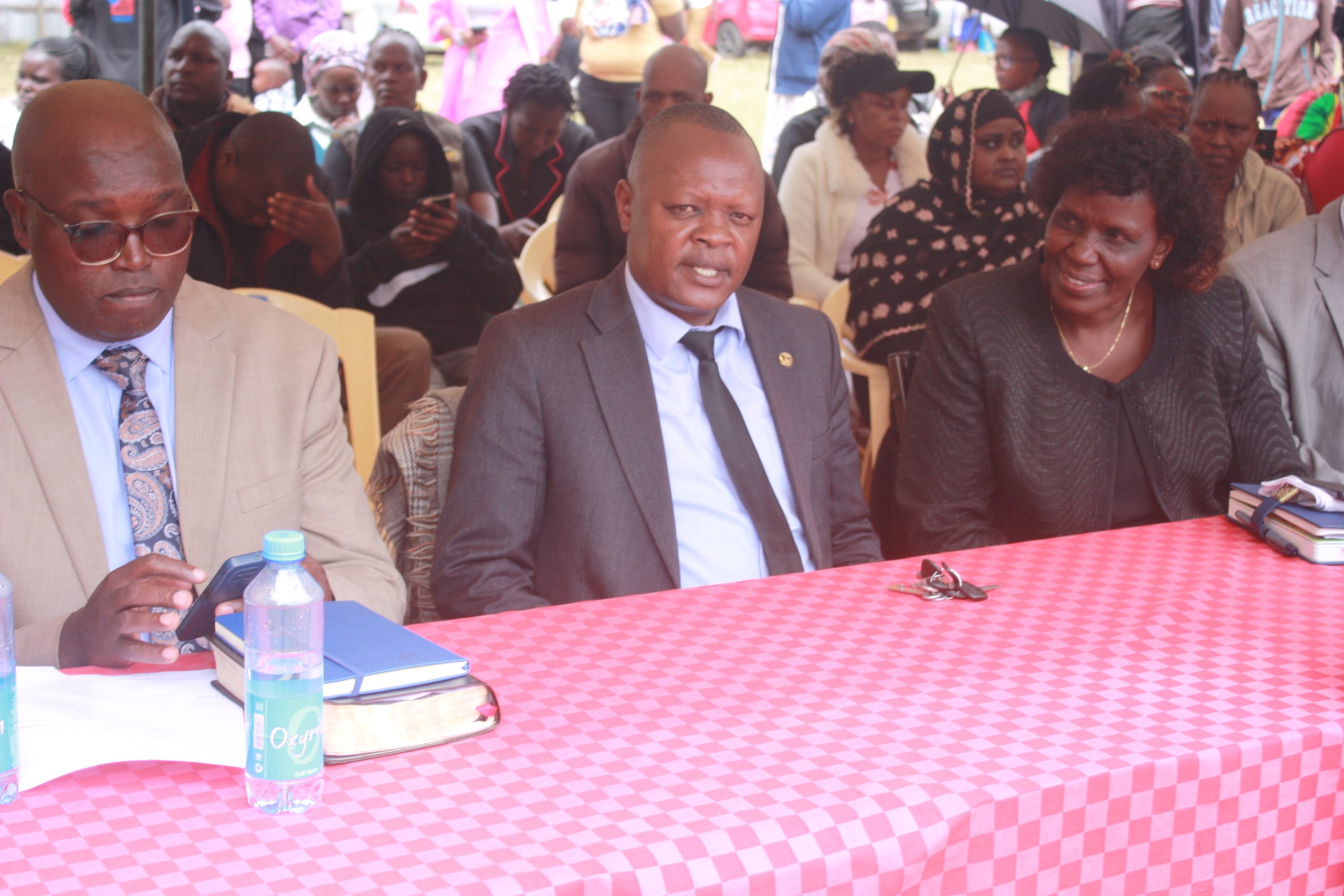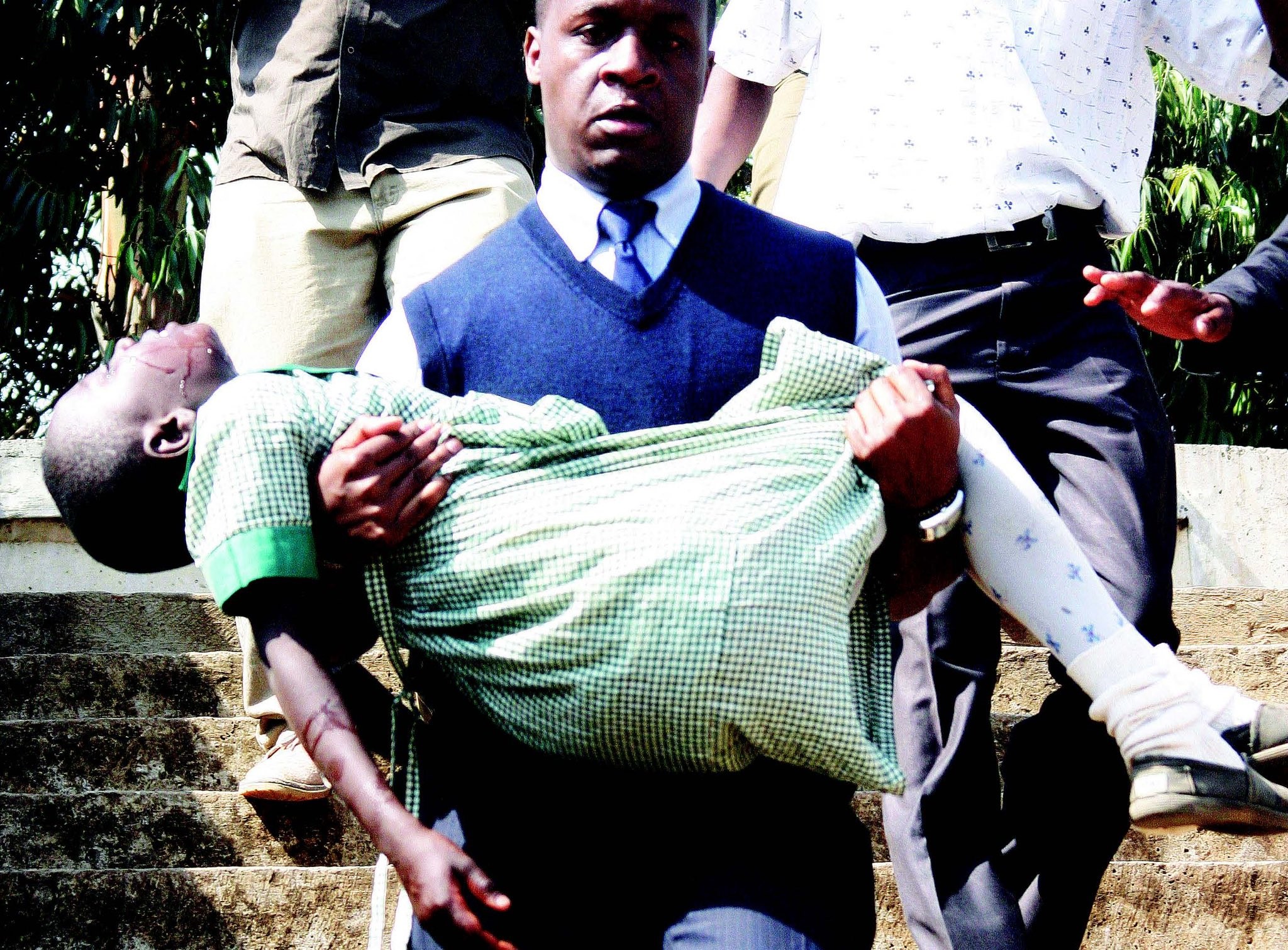Ayanna Health Foundation in partnership with Johanna Omollo Foundation, Live Healthy Initiatives and Education and Health for Kids in Kenya VZW commemorated Menstrual Hygiene Day at Dandora Primary school in Nairobi County by donating re-usable sanitary towels to school girls in the area.
Live Healthy Initiatives director Roisa Kerry said the organization is seeking to eradicate the shame and stigma surrounding menstruation by encouraging conversations around the taboo subject.
She encouraged girls not to feel ashamed because of a normal biological process.
Roisa added further that menstrual health and hygiene is important for the well-being and dignity of all women, noting with determination that she is focused on eliminating the taboo around periods and recognizing and addressing the unbearable pain and discomforts menstruation comes with.
`We should accord women and girls the opportunity to receive menstrual cycle disorders for earlier diagnosis and access health care services for earlier interventions,” she said.
Data from World Health Organization reveal that globally, 23 million girls drop out of school annually due to lack of proper menstrual hygiene management facilities, which include the availability of sanitary products and information about menstruation. In Kenya 65% of women and girls cannot afford sanitary pads.
Period poverty is not only the lack of menstrual products due to financial challenges but also lack of education about women’s menstruation and safe hygienic sanitation facilities.
Dr Jackline Mosinya Nyaberi, CEO and founder of Ayanna Health, said there should be policies for free menstruation commodities for women and girls.
“Just like there are free condoms, there should be free sanitary pads for all women,” she said.
Nyaberi, who is lecturer in the Department of Environmental Health and Disease Control at JKUAT, noted with concern that some women and girls are forced to trade their bodies to buy menstrual products.
Nyaberi said during this year’s celebrations, the girls were taken through menstrual health and hygiene training.
She noted that improving menstrual health and hygiene can help girls stay in school, reduce the risk of infections and other health complications, and empower girls to take control of their reproductive health.
Victor Akumu from Johanna Foundation said the foundation uses football to create awareness on Menstrual health and hygiene, dispel stigma and break taboos surrounding menstruation.
He said football helps teenage girls build their social networks, self-esteem, receive social support and nurture talents besides keeping them in school.
In partnership with Education & Health 4 Kids in Kenya, they support girls in different schools in Dandora to manage their period with dignity.
Education & Health 4 Kids in Kenya has changed lives and given hope to girls in Dandora by distributing dignity kits and paying their school fees.
Lack of adequate water and sanitation in the informal settlements has contributed to girls’ challenge of managing menstruation at school, especially when they cannot access products to absorb menstrual blood and appropriate facilities for hygiene.
Poor hygiene measures during menstruation can pose serious health risks, such as reproductive and urinary tract infections.
Poverty in the slums is so extreme that families have to prioritize other expenses like food rather than buying menstrual products. In turn, some women and girls are forced to sell their bodies to get money to buy basics like sanitary pads.
By Obegi Malack
Obegimalack@gmail.com
Get more stories from our website: Education News
You can also follow our social media pages on Twitter: Education News KE and Facebook: Education News Newspaper for timely updates.





